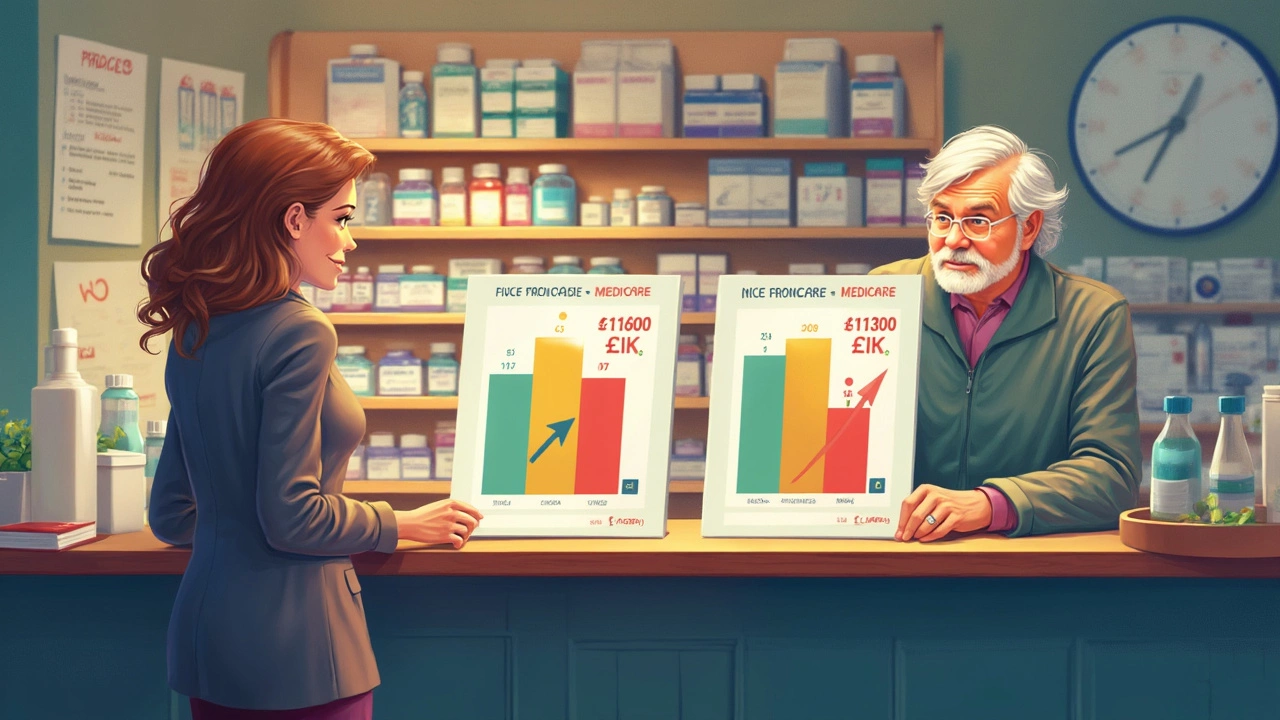Prescription Costs in the UK: What You Need to Know
Prescription prices can feel like a surprise every time you pick up a new medication. Whether you’re buying acne creams, hormone patches, or a simple painkiller, the cost often catches you off guard. In this guide we break down why prices rise, which rules affect you, and how to stretch every pound.
Why Prescription Prices Keep Rising
First off, the price tag isn’t random. Drug companies set the wholesale price, then the NHS adds a dispensing fee. When a brand‑name drug goes off patent, cheaper generics usually appear, but not always immediately. Some aesthetic prescriptions, like injectables, stay pricey because they’re considered specialty items and aren’t covered by the NHS. Inflation, research costs, and the need for newer formulations also push numbers up.
Another factor is the “pre‑payment certificate” (PPC). If you need multiple prescriptions a month, a PPC can cap your total cost, but only if you know how it works. Many people never sign up and end up paying per item, which adds up fast.
How to Save on Your Medications
Start by checking if a cheaper generic exists. Websites like the NHS drug directory let you compare brand and generic prices in seconds. If you’re getting a cosmetic prescription, ask your clinician if a similar, lower‑cost product works just as well. Sometimes a small change in concentration or brand can shave off a lot of money.
Ask your pharmacist about the “NHS prescription pre‑payment certificate.” For £480 a year (2025 rate) you can get unlimited NHS prescriptions, which saves you if you need more than a few per month. It’s a simple calculation: divide the cost of your usual prescriptions by the PPC fee – if it’s higher, the certificate pays off.
Don’t forget to shop around if you use a private pharmacy. Online pharmacies often have lower dispensing fees, but make sure they’re registered with the General Pharmaceutical Council. A quick call can confirm the price difference before you order.
Finally, look at NHS “exemptions.” If your annual income is below a certain threshold, you’re exempt from prescription charges altogether. The criteria include age, medical conditions, and benefits status. A quick check on the NHS website can tell you if you qualify.
By staying aware of these options, you can keep prescription costs from draining your budget. Whether you’re treating a skin condition or managing a chronic illness, a few smart moves go a long way.
Why Is Social Security No Longer Paying Medicare Part B?
Social Security doesn't pay for Medicare Part B-it just collects it. If your premium isn't being deducted anymore, you may be billed directly. Missing payments can cost you coverage and trigger lifelong penalties.
Read More
Medicare Drug Discounts: Why Are Seniors Still Paying Full Price?
Ever wondered why people on Medicare often don't get drug discounts at the pharmacy? This article looks at the real reasons Medicare patients pay more, the rules behind it, and what you can do about it. You'll learn how odd regulations block savings, plus tips for actually cutting costs. If you're tired of sticker shock at the pharmacy, let's break down what’s really going on.
Read More
How Much Does SingleCare Cost a Month? Real Answers for Prescription Savings
Wondering how much SingleCare costs per month? This article clears up the confusion about fees, explains how SingleCare actually works, and tells you what to expect at the pharmacy. Get practical tips and discover if there's any catch or hidden cost with using SingleCare for your prescriptions. You'll also find comparisons with similar services to help decide if it's worth trying. No fluff—just straightforward info to help you save.
Read More
Is SingleCare Cheaper than Medicare?
Comparing SingleCare and Medicare can reveal surprising differences in prescription costs. This article explores how each option impacts your wallet, considerations to keep in mind, and tips for maximizing your savings. By diving into the actual costs and people's real-world experiences, you'll get a clearer picture of what might be better for your budget. Learn how factors like location and specific medications can tip the scales in favor of one option over the other.
Read More
What’s the Catch with GoodRx? Unpacking Prescription Savings
GoodRx claims it can help you save a bundle on medications, but what's really going on behind the sticker price? When prescription costs are a constant worry, GoodRx offers a way to cut expenses without jumping through too many hoops. However, it's important to know exactly how it impacts your prescriptions and what you might be trading off for lower prices. We’ll demystify how GoodRx works, explore who benefits most, and what potential downsides might lurk beneath the surface.
Read More
Why is GoodRx Charging $9.99 a Month?
Discover why GoodRx is charging a $9.99 monthly subscription by exploring its benefits and how it affects your prescription costs. Learn about the impact on your budget and whether it's worth the price. Find tips to make the most out of the GoodRx membership and assess if any potential savings apply to your medications.
Read More
App to Compare Prescription Prices: Finding Savings
In a world where prescription prices can vary wildly between pharmacies, finding an app to compare these prices is a game-changer. With a few taps, you can uncover savings opportunities that help manage your healthcare budget more efficiently. Using technology, this approach provides transparency and allows consumers to make informed decisions about where to fill their prescriptions. It's all about empowering users with the information they need to reduce out-of-pocket expenses. Learn how these apps work and how they can benefit you.
Read More






